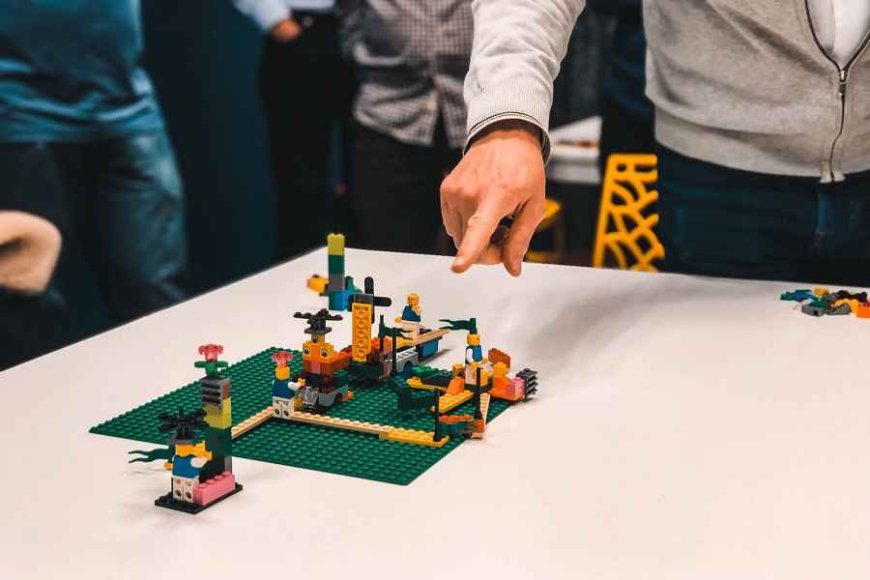The Power of Learning Through Play
In the realm of education, a paradigm shift has taken place over the years, recognizing the inherent potential of learning through play.

In the realm of education, a paradigm shift has taken place over the years, recognizing the inherent potential of learning through play. This innovative approach intertwines education with entertainment, creating an engaging environment that fosters creativity, critical thinking, and holistic growth. From toddlers exploring the vibrant world of building blocks to adults engaging in complex strategic games, the concept of learning through play transcends age boundaries and offers a plethora of benefits. This article delves into the multifaceted advantages of integrating play into learning experiences, highlighting various ideas and activities that effectively tap into this educational goldmine.
Unleashing Creativity through Play
Creativity is a cornerstone of human advancement and achievement. Learning through play provides an ideal platform for nurturing creativity in individuals of all ages. Children, for instance, immerse themselves in imaginative role-playing games that encourage them to construct new worlds, characters, and scenarios. Such activities not only hone their storytelling skills but also bolster their ability to think outside the box and envision limitless possibilities. Even adults can harness the power of creativity through activities like art, music, and theater, which stimulate the brain and infuse life with a renewed sense of innovation.
From Problem Solving to Critical Thinking
In the realm of learning through play, challenges and puzzles emerge as powerful tools for honing problem-solving skills and nurturing critical thinking. As individuals tackle puzzles or engage in strategy-based games, they're compelled to analyze situations, anticipate outcomes, and adapt their approaches accordingly. Board games like chess and strategy video games immerse players in complex decision-making processes, promoting the development of strategic thinking, logical reasoning, and quick decision-making skills. These games effortlessly combine fun and learning, making education an exciting journey of discovery.
Physical Play for Holistic Growth
Physical activities often take center stage when discussing learning through play. From tag games that teach children about spatial awareness and teamwork to outdoor adventures that cultivate physical fitness, the benefits are manifold. Engaging in physical play not only contributes to physical well-being but also enhances cognitive development. The brain's neural connections are strengthened as individuals navigate through challenges, and the release of endorphins during physical activity stimulates a positive mood that supports effective learning.
Cultivating Social Skills
Learning through play is a social endeavor that fosters meaningful interactions and the development of essential social skills. Collaborative games, role-playing scenarios, and team challenges require effective communication, negotiation, and cooperation. Children learn to share, compromise, and understand the perspectives of others, skills that are equally valuable in adulthood. Moreover, multiplayer video games and online platforms provide opportunities for individuals around the world to connect, collaborate, and learn from each other, transcending geographical barriers and promoting a sense of global community.
Language Acquisition through Playful Engagement
Language acquisition becomes a delightful journey when approached through play. Storytelling, word games, and language-based puzzles nurture vocabulary expansion and linguistic prowess. Even for individuals learning a second language, engaging in conversation-driven games or interactive language apps offers a dynamic and enjoyable learning experience. By making language acquisition enjoyable and interactive, learning through play transforms the daunting task of learning a new language into an exciting adventure.
Integrating Technology into Play-Based Learning
In the digital age, technology seamlessly merges with the concept of learning through play. Educational apps, interactive simulations, and augmented reality experiences immerse learners in captivating scenarios that combine entertainment and education. For instance, history can come alive through virtual museum tours, and science concepts can be explored through interactive simulations. By leveraging technology, educators can create immersive learning environments that cater to diverse learning styles and capture the attention of digital-native generations.
Parental Involvement and Learning at Home
The impact of learning through play isn't limited to formal educational settings. Parents play a pivotal role in incorporating play-based learning into daily routines. Simple activities like cooking together, gardening, or crafting provide opportunities for hands-on learning experiences. Reading interactive stories, solving puzzles, and engaging in creative projects enhance parent-child bonds while fostering cognitive development. With parental involvement, learning through play extends beyond school walls, enriching a child's overall growth and understanding of the world.
Fostering Lifelong Learning and Curiosity
The integration of play into education nurtures a lifelong love for learning and a curious mindset. When individuals experience the joy of discovering new information through play, they develop a thirst for knowledge that transcends traditional boundaries. The process of exploration becomes an inherent part of their identity, prompting them to seek out opportunities for growth in various aspects of life. This curiosity-driven approach transforms learning from a chore into a passion, propelling individuals toward continuous self-improvement.
The concept of learning through play is a testament to the incredible potential of blending education with entertainment. From stimulating creativity and critical thinking to fostering holistic growth and social skills, the benefits are undeniable. As technology continues to evolve, the opportunities for immersive play-based learning expand, engaging learners in novel and captivating ways. Whether in classrooms, homes, or virtual environments, learning through play serves as a dynamic pathway to knowledge, empowerment, and a brighter future. Embracing this approach not only revolutionizes education but also ignites a lifelong passion for learning that knows no bounds
